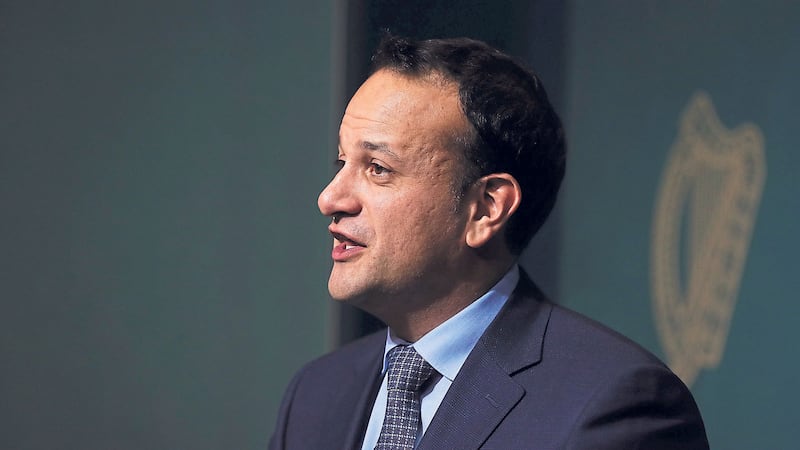I'm not really sure why some unionist politicians got so worked up by Leo Varadkar's recent comments: "Our constitution is clear on this: our constitution aspires to there being a united Ireland. I share that aspiration. But only on the basis that it is done by consent, and when it does come about I would like to see it command a degree of cross-community support. And that's the way I would envision it. I very much follow the school of thought of the great John Hume, who talked less about a united Ireland and more about an agreed Ireland and a set of relationships that we can all be happy with. That's the way it should be."
That's more or less been the Irish government's official position since the 1985 Anglo-Irish Agreement.
It's not really all that different from the British government position that, "Northern Ireland will remain a part of the United Kingdom for so long as a majority wish it."
Put bluntly, both governments are saying that it's up to the people of Northern Ireland to decide their own constitutional future.
Some unionists appear to believe that Varadkar should keep his nose out of 'our' affairs. Yet, thanks to the Brexit result, 'our' affairs have become their affairs.
Nationalists in Northern Ireland are worried. They fear that an identity they thought was guaranteed by membership of the EU will no longer be guaranteed. They fear Northern Ireland being ruled by a succession of isolationist 'little Englander' governments in London. They fear that the continuing absence of a local assembly - and the increasing possibility of direct rule - means that there will be nobody to represent them at local level.
The Brexit result changed everything and completely upended the political dynamics on both sides of the border. It changed the nature of the relationship between London and Dublin - leaving it tetchier than it has been for 35 years. It created an enormous problem between the Leave camp (consolidated around the DUP) and the Remain camp (consolidated around SF, but also embracing SDLP, Alliance, Green). It has made it much more difficult for an executive to be established; because even if they could find agreement on some areas, there would be no agreement on a Brexit deal. And yes, the result has also had an unforeseen and entirely unprepared for impact on the Good Friday Agreement.
So it's no surprise that the border and Irish unity are now occupying minds in a way that wasn't even a possibility three years ago. The uptake in Irish passports is one manifestation of concern. The fact that the leaderships of both Fine Gael and Fianna Fail are openly discussing the possibilities of unity is another manifestation. Sinn Féin's vote increase is another. The recent joint letter from over 200 'Irish citizens in the north' to Leo Varadkar is another. The recent findings in LucidTalk's poll about support for Irish unity and a couple of polls from Dublin is another manifestation. Other manifestations will become apparent over the next year.
At an event at the West Belfast Festival in August (where I was on a panel with Michelle O'Neill), a veteran member of Sinn Féin said to me: "I never really believed that Irish unity would happen in my lifetime, Alex, but Brexit has changed everything. We're closer now than we've ever been." As it happens - and I did tell him so - I think he's wrong about unity anytime soon; but he is right about a new and palpable air of optimism within republicanism. And it's that optimism which unionists need to address.
So attacking Varadkar for 'poking his nose in' is a wasted response. Pretending that nothing has changed is a wasted response. Ignoring the reality that nationalists (especially those who have been reasonably content to side with the UK in the unity debate up to now) are worried is a dangerously sanguine response. Believing that attacking Varadkar is better than sitting around a table with him (he may well be taoiseach for quite a long time) is a self-defeating response.
The UK vs Irish unity debate is going to dominate politics for the next few years - probably right through the centenary of Northern Ireland in 2021. That's no bad thing in my opinion. It's about time that the pro-Union arguments were set out, while the Irish unity arguments were deconstructed, piece by piece. And it's not just a Northern Ireland audience which needs addressed: we also (and yes, I write as an unambiguous unionist) need to address audiences across Ireland and the rest of the UK.








